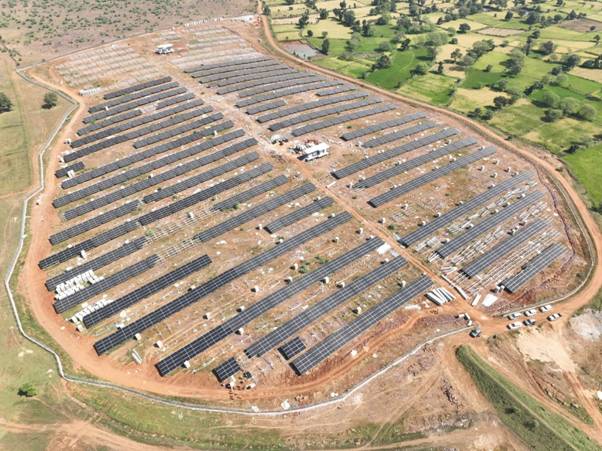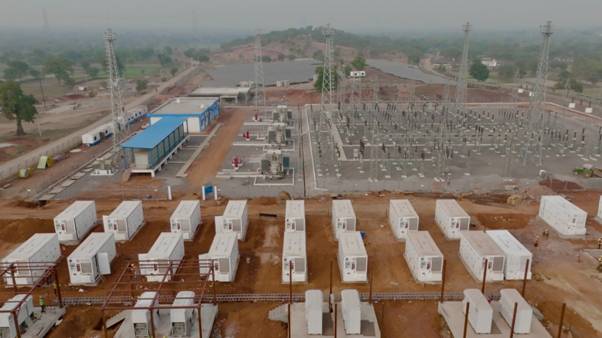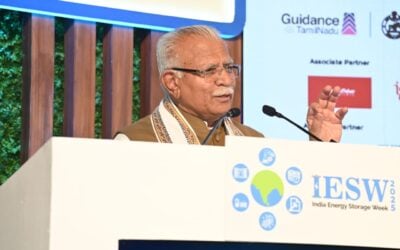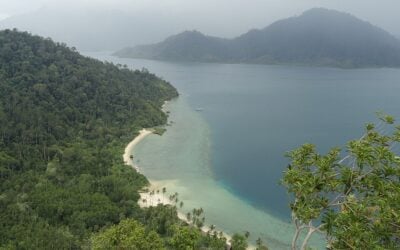
The largest battery storage facility in India is now online and was visited last week by the country’s Prime Minister, Narendra Modi.
In what may yet prove to have been a pivotal few days for the renewable energy sector in the world’s most populous nation, a meeting also took place last week to discuss funding mechanisms for 4,000MWh of storage at renewable power plants which the government has committed to supporting.
Enjoy 12 months of exclusive analysis
- Regular insight and analysis of the industry’s biggest developments
- In-depth interviews with the industry’s leading figures
- Annual digital subscription to the PV Tech Power journal
- Discounts on Solar Media’s portfolio of events, in-person and virtual
The state’s Solar Energy Corporation of India (SECI) announced the successful commissioning of a 40MW/120MWh battery energy storage system (BESS) at a solar PV plant in the city of Rajnandgaon, Chhattisgarh.
A dedication was made by Modi that day (24 February), as he also welcomed a number of other large infrastructure projects in the state, which included a 1,600MW coal-fired thermal power plant and laid the foundation for another of equivalent size.
Other projects welcomed by the prime minister at the event, which was hosted by video conference, included a new train-based transport network for coal in the area and investment in roads.
The coal plants, therefore, dwarf the battery storage system in size as well as the 155MWdc/100MWac solar PV plant with which it is paired.
An official statement from the national press bureau, PIB, put the cost of the solar-plus-storage project at IR9 billion (US$110 million), which again is dwarfed by the IR158 billion for the Super Thermal power plants. Both are described as ‘Super Thermal’ plants, supposedly with much higher efficiency and lower emissions than other coal-fired generators.
World Bank-supported project
SECI awarded the solar PV and battery project to Tata Power Solar Systems, the solar PV subsidiary of Tata Power, in late 2021. The scope of the order included engineering, supply, design, construction, testing, operations and maintenance (O&M) and commissioning. SECI opened to bids from late 2020, with the scope of the project design and targeted capacities undergoing some revision from there.
Energy-Storage.news spoke with Tata Power representatives following the project award, and the “promising potential” for storage in India for distributed and grid-scale applications. Another Tata Group company, Tata AutoComp, delivered the project’s BESS units through its joint venture with Chinese battery maker Gotion.
The project received some financial support from the World Bank, receiving a share of funding for solar PV projects aimed at reducing barriers to commercial investment in the sector and promoting new technologies in the market.

The funding comprised a US$150 million International Bank for Reconstruction and Development (IBRD) loan, a US$28 million loan from the Clean Technology Fund (CTF) and a US$22 million CTF grant. In addition to the solar-plus-storage plant, money was also committed to a floating PV project at a reservoir in the state of Jharkhand.
PIB said that one notable aspect of the Rajnandgaon solar power plant is its development on waste land across nine villages that would otherwise not be used, while from a tech standpoint it is claimed as a relatively early example of bifacial PV modules being deployed on a large-scale project in India.
Viability Gap Funding discussed
Union Minister for Power and Renewable Energy, RK Singh last week (22 February) chaired a meeting in New Delhi to discuss how the government will provide Viability Gap Funding (VGF) pledged towards 4,000MWh of energy storage.
The storage capacity will be aimed at turning renewable power into round-the-clock (RTC) energy for the grid. The government’s VGF support for this was confirmed in early 2023 at the annual Union Budget announcement for the upcoming financial year (FY).
This year’s Union Budget announcement – considered an interim budget in what is an election year in India – didn’t yield much in the way of direct support measures for energy storage deployment or manufacturing beyond 10GWh being added to a scheme for supporting advanced cell manufacturing, but the VGF funding was again confirmed by finance minister Nirmala Sitharaman.
The meeting last week was attended by senior officers of the respective power and renewables ministries, SECI, the Central Electricity Authority (CEA), Grid India and state-owned power producer NTPC.
RK Singh and the assembled participants discussed various methods of procuring BESS capacity and potential sites where these round-the-clock renewable power plants could be located, as well as other aspects such as the falling cost of BESS technology and the need for such facilities to cover peak demand and reduce curtailment of wind and solar.
Energy-Storage.news’ publisher Solar Media will host the 2nd Energy Storage Summit Asia, 9-10 July 2024 in Singapore. The event will help give clarity on this nascent, yet quickly growing market, bringing together a community of credible independent generators, policymakers, banks, funds, off-takers and technology providers. For more information, go to the website.






